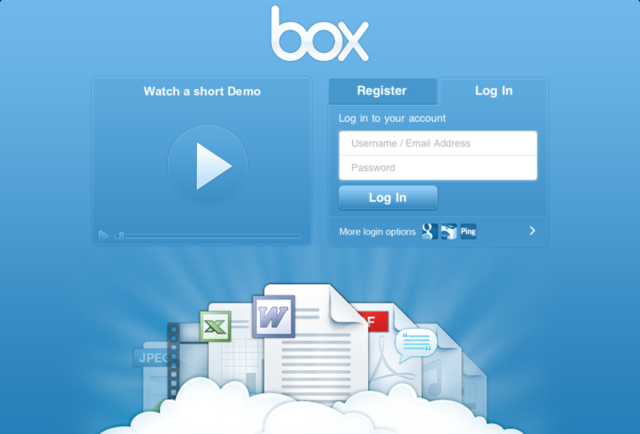
Eventbrite is a business firmly rooted in the cloud. With a website hosted on Amazon EC2, Google Apps for e-mail, calendaring and document creation, a sales team that uses Salesforce.com, and DocuSign for electronic signatures, the company is a big fan of hosted services. So when the 200-employee firm wanted a better way to share files and enforce access controls, it started scouting out cloud services, ultimately choosing Box.net as its standard method of sharing documents.
For consumers, Dropbox is probably the best known such service, providing syncing of documents across most types of computers and mobile devices. But Dropbox has a serious competitor in Box.net, especially in the potentially lucrative market for corporate file sharing. Charging $15 per user per month for business accounts, and negotiated rates for enterprise accounts, Box claims to have 100,000 organizations signed up, including 82 percent of the Fortune 500.
Eventbrite, an online event management service, evaluated both Box.net and Dropbox earlier this year, before the embarrassing breach in June in which a faulty update caused all Dropbox accounts to be accessible without the correct password for four hours. Even then, Eventbrite IT manager Miguel Pino said his company felt Box offered better security and administrative features. (For disclosure's sake, we set up our interview with Eventbrite through Box's public relations team.)
"We were looking for something that was going to be secure," Pino says, while noting that there are risks with any cloud service. "We do have sensitive information up on Box and we have to trust that Box is secure," he says. "We've seen their SAS 70 reports and that Box is Safe Harbor compliant." Box is used broadly across Eventbrite departments from sales and recruiting to finance and legal, but Pino notes "I wouldn't say our most sensitive documents [such as personnel files and financial documents] are in Box.net. We do maintain an internal file collaboration server to store critical stuff."
But using internal file servers for everything wasn't the best option for Eventbrite. The company is based in San Francisco, but has employees all over the country and in London, and "we wanted all of our users to collaborate on information even if they were outside of our office and not see any performance hit," Pino said. "We feel like the benefits outweigh the risks given the fact that when you do put things inside your firewall, you have to build that infrastructure to support multiple geographical locations. It creates sort of a bottleneck in the workflow." Importantly, Pino said Box provides him the ability to control read and write access to files based on an employee's level of privilege, utilize version control, and impose password requirements on files shared with people outside the company.
Eventbrite makes use of the service on iOS and Android phones and tablets. The company also has a large population of Mac users, and was granted early access to the Box Sync client for Mac released in September. Each time Eventbrite hires an employee, Pino said the newcomers get a tutorial on how to store files in Box and the IT team helps them make sure documents are backed up in the service. For example, Box acts as back-end storage for anything created in Google Docs. It also comes in handy for files that aren't otherwise stored in a cloud platform. Pino said when his own computer crashed a few weeks ago, nearly all of his data was synced with Box, making it easy to recover.
From an IT administrator's perspective, "I really like the reporting features that Box offers," Pino said. "I can see what is going on in terms of security on our account. Everything is auditable—every action a user takes on the account is auditable. If we wanted to see if someone deleted an entire folder, or if someone had failed to log in from which IP address, we could track down that information a lot easier than it would be with a service that didn't offer those tools."
Dropbox has a larger user base than Box.net, with 45 million users compared to 8 million for Box, and is clearly trying to bolster its standing in the business world. Dropbox recently rolled out Dropbox for Teams, with administrative controls and dedicated phone support, at a price starting at $795 a year for five users, with 1,000GB of storage. (Pino said Eventbrite's initial agreement with Box included 10TB, but that Box now promises his company unlimited storage).
Dropbox recently raised $250 million in venture funding, while Box raked in about $81 million after turning down an acquisition offer. Box has also lined up numerous partners to make its offering more attractive to developers and businesses. The so-called "Box Innovation Network" includes Appcelerator, Cloud Foundry, Heroku, Rackspace, SnapLogic, and Twilio, and aims to boost development of enterprise applications that connect to the Box platform. Box also has a deal with HP to ship PCs with the Box syncing service installed and give customers free accounts and discounted upgrade options.
Cloud services aren't yet right for all types of companies, or all types of applications and data, but it looks like the market share battle in online file sharing will be a fiercely competitive one.
reader comments
33